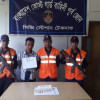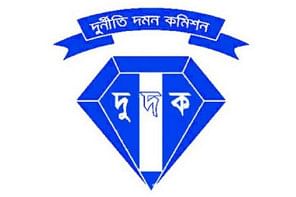How far does the gold syndicate’s reach go?

The unexplained death of Jhenaidah MP Anwarul Azim Anar has brought some shocking truths to light, including details of a brazen gold smuggling operation in his constituency. According to a recent investigation by this daily, Anar had invented a "token" system that would allow carriers transporting illegal gold a free pass from law enforcement. In return, the latter would get a "handsome" cut. This daily interviewed a carrier who said there are dozens like him who pick up consignments from various districts and deliver them to the border, where other operatives smuggle them out to India. The border smugglers earn between Tk 1 lakh and Tk 2 lakh per consignment, while carriers receive a fixed monthly salary.
According to local sources, gold smuggling has been taking place through this border area over the last four to five decades. Azim has reportedly been involved in the gold trade since he was a student in 1986, assuming a leading role for the last 10 years. The three-time MP stood accused in 21 cases between 2000 and 2008, including murder, extortion, and smuggling of arms, explosives, drugs and gold (which subsequently got dismissed during the AL regime). We cannot help but wonder how a man of his "notoriety" could hold such an important position, and whether the ruling party was truly unaware of the scale of his involvement in criminal networks.
The government should be as worried as we are about the nexus among criminals, law enforcement and political leaders, and the possibility of complicity of more people within its own ranks in sustaining such criminal networks.
The slain MP may have been one of the kingpins of this smuggling syndicate, but the question still remains: who else is involved in the trade, and how deep does the involvement run? Most importantly, can we expect an independent investigation into the syndicate now, or will the kingpins continue to orchestrate the show from behind the curtains, with the same impunity they have enjoyed till now?
The government should be as worried as we are about the nexus among criminals, law enforcement and political leaders, and the possibility of complicity of more people within its own ranks in sustaining such criminal networks. In order to regain public trust as well as for its own sake, the government must initiate a thorough and credible investigation into the smuggling syndicate, beginning with identifying all those within the law enforcement and administration who have been actively aiding and abetting the process. Exemplary action must be taken against them, no matter their designation. Anar's murder and subsequent investigations have caused great damage to the country's reputation, and the government must respond with urgency and full transparency.


 For all latest news, follow The Daily Star's Google News channel.
For all latest news, follow The Daily Star's Google News channel. 









Comments